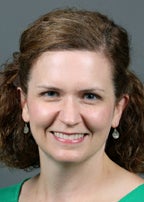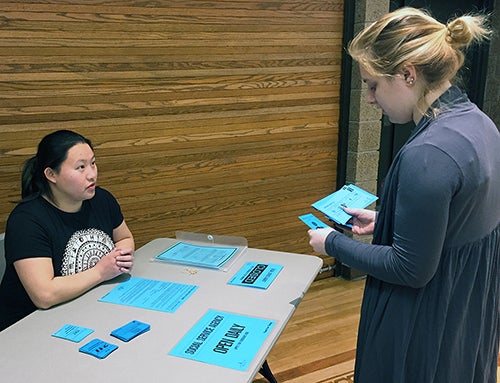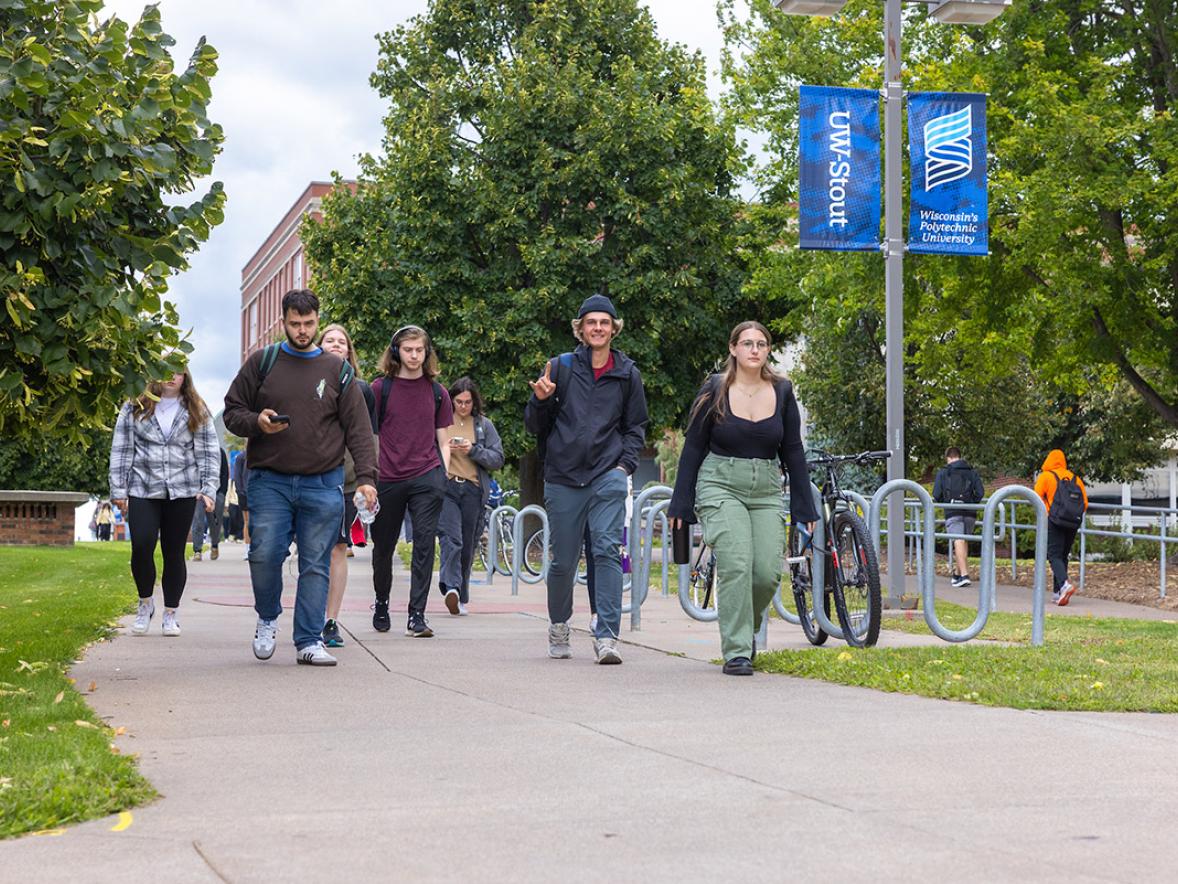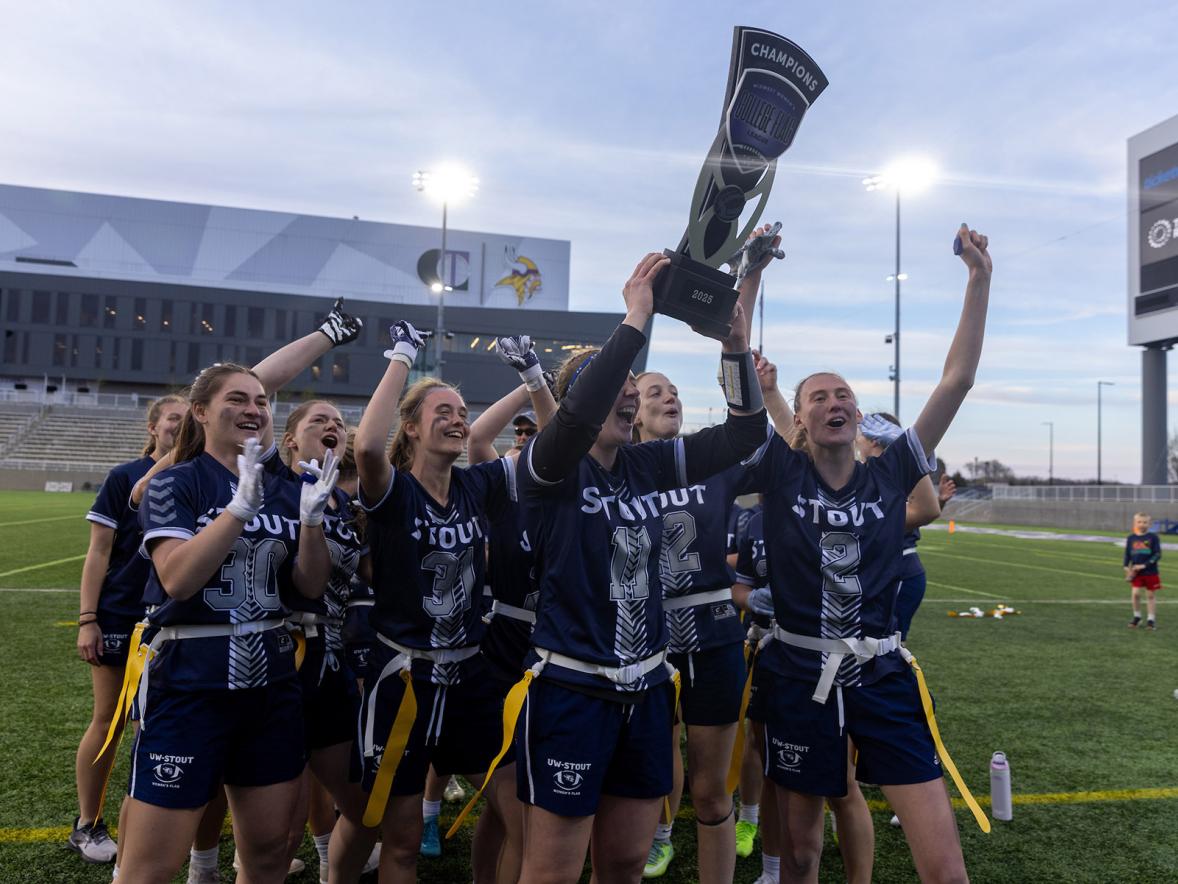University of Wisconsin-Stout student Alyssa Willett felt helpless as she faced feeding three children on $1 a day during a hunger and poverty simulation on campus Wednesday, March 28.
“I just gave up,” said Willet, 22, a senior from New Richmond majoring in human development and family studies. “There was nothing I could do. That is why kids fall behind in school because they are so hungry. Definitely it was an eye opener. I feel terrible for people who have to live through it.”
Bard Meier, an educator with the Hunger Task Force in Milwaukee conducted the simulation for students in the Family Resource Management class taught by HDFS Associate Professor Amanda Barnett. The class has 35 students.
 “My students are analyzing problems and solutions to poverty in the United States and how these problems and solutions disparately impact families’ resource decision making in poverty,” Barnett said. “This simulation was a great way to bring course material to life and help students see and feel what living in poverty can be like, ultimately building empathy for people who have different life experiences than many of our students, but also similar as quite a few students come from low-income families.
“My students are analyzing problems and solutions to poverty in the United States and how these problems and solutions disparately impact families’ resource decision making in poverty,” Barnett said. “This simulation was a great way to bring course material to life and help students see and feel what living in poverty can be like, ultimately building empathy for people who have different life experiences than many of our students, but also similar as quite a few students come from low-income families.
“There are some families who have to make tough decisions like who eats and how to pay the next bill. My mission as an instructor is I want my students to be informed and active citizens,” Barnett said.
Services were available during the simulation including food stamps, a food pantry, grocery and farmer’s market as well resources such as Women Infant Children and other social services. Many times, families aren’t aware of those programs or how to tap into them, Barnett said.
Makayla Pederson, 20, a junior HDFS major from Chatfield, Minn., had five people in her household, including three children age four and under during the simulation. She had $7 a day for food from her wage of $7.25 an hour as a waitress and her spouse’s $7.50 an hour as a cook.
“It was difficult,” Pederson said. “The hardest part was not knowing what agencies required and where to go.”
Eventually, Pederson, realized one of the best resources was the people around her who had already visited the agencies. However, she also struggled as the simulation continued when she got a better job but lost access to other resources to help feed her family,
 Kennedy Navis, 21, a senior family and consumer science education major from Cedar Grove, became an undocumented immigrant with eight family members to feed on $7 a day, including four children. Because she had no identification, she did not qualify for any programs to help keep food on the table.
Kennedy Navis, 21, a senior family and consumer science education major from Cedar Grove, became an undocumented immigrant with eight family members to feed on $7 a day, including four children. Because she had no identification, she did not qualify for any programs to help keep food on the table.
“It was stressful,” Navis said. “People in poverty have a lot of pressure just trying to feed their children and the rest of the family.”
Rebecca Silberfarb, 21, a junior HDFS major from Minneapolis, had the role of a 65-year-old raising three grandchildren, all under age 10. By the second day of the simulation she had no money and the local food pantry had burned down.
“It was definitely hard trying to utilize resources available and going back and forth trying to figure out their policies,” Silberfarb said. “It’s a challenge.”

The one positive part of the simulation was that she learned pinto beans are an inexpensive source of protein for a family.
“I got a whole new idea on the food aspect and what food costs as well as applying it to the nutritional food plate,” Silberfarb said.
Barnett said her students are also researching affordable housing this semester such as how employers can better support employees struggling with stable housing to ways to change the economy to ensure a living wage.
###
Photos
Amanda Barnett
Kennedy Navis
Rebecca Silberfarb, a UW-Stout student, at right, questions fellow student, Maiyee Vang, about possible social service agency funding during a hunger and poverty simulation.







